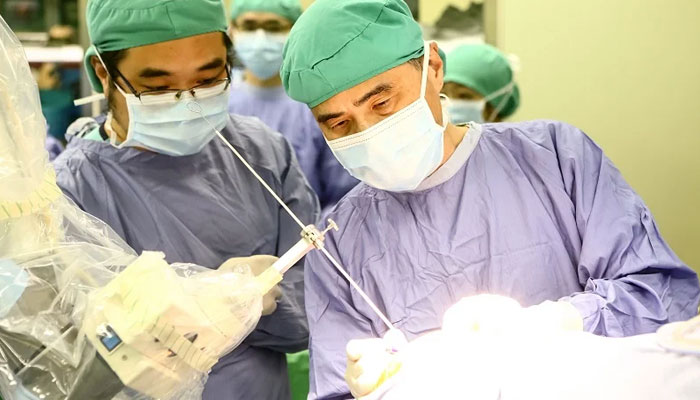NaoTrac, an autonomous neurosurgery navigation robot developed by Taiwanese company Brain Navi Biotechnology, will be presented for FDA approval in the United States before the end of the year.
NaoTrac was designed to provide neurosurgeons with a precise and reliable alternative to traditional neurosurgical assistants. Its Surface Mapping Auto-Registration Technology-SMART platform integrates robots, AI, and machine vision to improve surgical efficiency through real-time visualisation and minimal incisions.
The tool can be used for cell implantation and endoscopic brain surgery, among other procedures.
NaoTrac, which is asserted to be the first autonomous neurosurgery navigation robot, has recently received approval from Taiwan’s Food and Drug Administration (TFDA) and already holds CE Mark certification. The Hualien Tzu-Chi Medical Center hosted the first-ever human trial of the neurosurgery navigation robot in November 2018.
On a patient with hydrocephalus, NaoTrac carried out the external ventricular drainage (EVD) implant procedure. In the study, the device quickly and precisely placed the EVD tube where the surgeon had envisioned before the procedure.
Dr. Tsung-Lang Chiu, a consultant at Hualien Tzu-Chi Medical Center, stated that the findings of this analysis indicate that the average duration spent on patient registration was 1,423.8 seconds. The average target deviation was 1.68 millimetres, and the average angle deviation was 1.99 degrees, both of which were within the acceptable range for little tissue damage.
In addition to its high accuracy, NaoTrac has a number of benefits in addition to its non-invasive, non-contact patient registration approach with an efficient procedure and the system’s accurate guidance to the surgical target. In addition, it is convenient and offers a variety of advantages. Brain Navi intends to present NaoTrac in the US in October at the Taiwan Expo USA 2022 in Washington DC and also at the Congress of Neurological Surgeons (CNS) Annual Meeting in San Francisco, California.


















